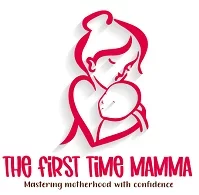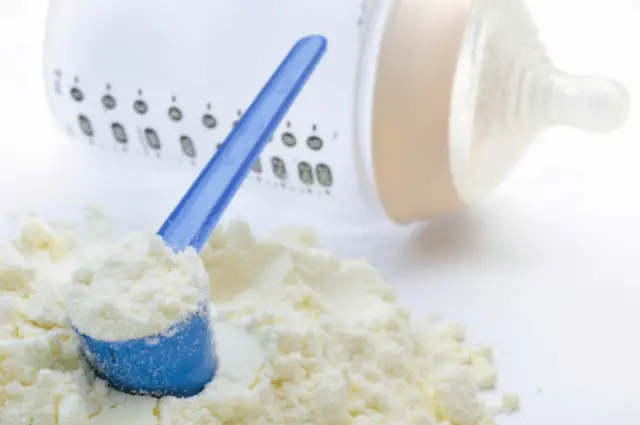Do you want to know how many scoops of formula for 3oz? It is not difficult to calculate. But first, a little information about infant formula. Infant formula is produced as a substitute for breast milk. It contains the essential nutrient that a baby needs for healthy development. Infant formula mimics the nutrients found in breast milk. It is important to know the measurements of water and formula to mix for your baby to avoid mixing the formula with too much water which can make the formula have lower calories than needed or adding too much formula in the mixture which might result in giving your baby too many nutrients than the developing digestive system can handle. This is why most new moms ask “How many scoops of formula for 3oz”?
Hey! By the way… any links on this page that lead to products on Amazon are affiliate links and I earn a commission if you make a purchase. Thanks in advance – I really appreciate it! .
It is important to measure an infant’s formula correctly because a wrong measurement can lead to nutritional deficiencies. There are certain essential nutrients contained in infant formula and when the formula is not measured correctly, this nutrient would not be passed to the babies. Nutritional deficiencies can lead to unhealthy development and can interfere with your baby’s neurological development. Measuring an infant formula is essential when it involves a baby with low birth weight and premature babies who might have trouble digesting formula. So if you are asking “How many scoops of formula for 3oz”? Below is the answer.
- How many scoops of formula for 3 oz and 5 oz?
- How many scoops of formula in a can?
- How many scoops to put in a baby bottle?
- How many scoops of formula per ounce?
- Can you do half scoops of formula?
- How many scoops of formula for 1 oz?
- How many scoops of formula for 2 oz?
- How many scoops of formula for 2 1/2 oz?
- How many scoops of formula for 3 1/2 oz?
- How many scoops of formula for 4 oz?
- How many scoops for 6 oz of formula?
- How many scoops of formula for 7 oz?
- How many scoops of formula for 8 oz?
- How many scoops of formula for 9 oz?
- Does adding formula to water increase volume?
- How many scoops of formula for 60ml?
- How many scoops of formula for 90ml?
- How many scoops of formula for 150ml?
- How to mix baby's formula
- Safety measures in preparing baby formula
- How to store prepared baby formula
How many scoops of formula for 3 oz and 5 oz?
Formula measurements and preparation can be quite simple when you know the exact scoop of formula to use per oz. When you mix your baby formula you need to know the measurements so your baby can receive the appropriate nutrient. Adding too much water or too much formula can be injurious to your baby’s health and can have an impact on your baby’s development. It is advisable to use one scoop and a half of formula powder when using 3 oz of water to prepare a baby’s formula.
If you’re using 5 oz of water to make your baby’s formula you are required to use two and a half scoops of formula powder. However, it is important to ensure that the scoop of formula powder is leveled. Making a baby’s formula is quite simple but it is important to follow the directions for proper mixing and to ensure your baby’s healthy development. Below are the number of scoops you need for 1, 2, 2.5, 3, 3.5, 4, 5, 5.5, 6, 7, 8 and 9 ounces.
How many scoops of formula in a can?
The number of scoops in a can depends on the type of formula you use. For example, a can of SMA with an approximate 4g per scoop means that there are 225 scoops of formula in the can.
How many scoops to put in a baby bottle?
It depends on the number of ounces of water you want to use. But, most baby formula is 1 scoop of baby formula for every 2 fluid ounces of water.
How many scoops of formula per ounce?
It is 1 scoop of formula per ounce.
Can you do half scoops of formula?
No, it is not advisable to use half a scoop of formula for whatever reason. It may hurt your baby.
How many scoops of formula for 1 oz?
It is one scoop of a formula for 2 oz. So, it will be 1/2 scoop of a formula for 1 oz. That is the rule of thumb when making formula for your baby.
How many scoops of formula for 2 oz?
It is one scoop of a formula for 2 oz of water, especially for the Similac formula.
How many scoops of formula for 2 1/2 oz?
This is a bit tricky, especially for a formula that uses 1 scoop for 2 oz. You can make 5 oz of formula with 2.5 scoops of formula and divide it into two bottles. Put one in the refrigerator and use one for the baby.
How many scoops of formula for 3 1/2 oz?
1.5 scoops of formula will make a 3 oz bottle. To get 3.5 oz, you will need to add 2 scoops of formula to make 4 oz, use the 3.5 oz and keep the rest.
How many scoops of formula for 4 oz?
It is 2 scoops of formula for 4 oz of water.
How many scoops for 6 oz of formula?
It is 3 scoops of formula to make 6 oz of formula for your baby.
How many scoops of formula for 7 oz?
It is 3.5 scoops of formula to make 7 oz of baby formula.
How many scoops of formula for 8 oz?
It is 4 scoops of formula to make 8 oz of baby formula for your baby.
How many scoops of formula for 9 oz?
It is 4.5 scoops of formula for 9 oz of water in a bottle.
Does adding formula to water increase volume?
Many moms are confused about formula adding volume to the water for mixing. For instance, when you want to make 4 oz bottle, you will use 2 scoops of formula. Can this increase the volume of the milk? Yes, it can increase the volume to almost 5 oz of formula. But you shouldn’t count like that. 4 oz of water plus formula powder equals 4 ounce bottle, regardless of actual volume after mixing.
How many scoops of formula for 60ml?
In general, 1 scoop of formula is used for 60 ml of water. To guarantee precise measurements, it’s crucial to refer to the detailed instructions provided by the formula manufacturer.
How many scoops of formula for 90ml?
Usually, 1.5 scoops of formula is sufficient for 90 ml of water. For precise measurement, it’s important to adhere to the directions on the formula container and make sure the scoops are leveled.
How many scoops of formula for 150ml?
For 150ml of water, you would typically use 2.5 scoops of formula. However, because different brands may have slightly varying ratios, it’s important to follow the precise directions indicated on the packaging of the formula.
Now that you know the answer to the question “how many scoops of formula for 3oz, it is time to learn how to properly mix the formula together.
How to mix baby’s formula
After picking a formula for your baby, the next step is mixing your baby’s formula. Below are the guidelines for mixing a baby’s formula.
- Ensure to wash your hands well before mixing your baby’s formula.
- Boil the water you want to use to mix your baby’s formula and let the water cool to room temperature before adding the formula. Avoid using boiling water to make your baby’s formula because it can cause clumping of the formula.
- Measure and put the amount of water needed in your baby’s bottle.
- Add the required level scoop of formula powder to the bottle.
- Place the cap on the bottle and ensure it is secure and firm.
- Shake the bottle in a twisting motion to make the formula dissolve and mix with the water quickly.
Safety measures in preparing baby formula
- Use clean water: It is important to use water from a safe source when preparing your baby formula. If you are not sure of the source of the water you want to use, you can boil the water and allowed it to cool off before using it to mix your baby’s formula. You can also use bottled water to prepare a baby’s formula. It is important to note that you should always use a clean cup to measure the water used in the preparation of your baby’s formula to avoid contamination.
- Follow the direction on the formula: Formula cans come with a direction from the manufacturer to avoid making a mistake with the measurement. Using the measurement of water and formula powder on the instruction section of the formula can help in avoiding adding too much water or too little water which can affect your little one’s development.
- Maintain good hygiene: It is important to wash your hands well and clean the tabletop area you will be preparing your little one’s formula to avoid it being contaminated by germs.
- Avoid using a highly scented soap to wash your baby’s bottle: It is advisable to use a mild soap when washing your baby’s bottle. Always ensure to rinse your baby’s bottle properly even before mixing the formula in it to avoid having soap residue on the bottle that can contaminate your baby’s formula.
- Avoid using a microwave to warm formula: It is wrong to heat a formula bottle in the microwave because the heat from the microwave heats food and liquid unevenly and this might leave some part of the formula too hot for your baby’s tongue to handle. To warm your baby’s formula bottle, you can run warm water on the bottle for a few minutes. It is important to ensure you put a few drops on the back of your hand to make sure it is not hot for your baby’s tongue.
How to store prepared baby formula
You might want to store your baby’s formula to be used at a later time, in case of emergencies or when you are occupied with work. As a mother, you might not know the exact way to store an already prepared formula. Below are the guidelines for storing a prepared baby formula.
- Store prepared formula in the refrigerator within 1 hour of preparation.
- Formula can be stored in the refrigerator for about 24 hours after preparation. Bottle lid should be firmly close to avoid extreme temperature entering the formula.
- If you’re using a ready to feed formula, cover the open can with a plastic wrap and place the can in the refrigerator.
Measuring formula powder is important when making your baby’s formula. It helps you to avoid putting too much water or too little water that can lead to nutritional deficiencies in your baby. These tips would help you to know the safety measures when preparing your baby’s formula, so your baby’s health can be protected. Also, ensure you follow the guidelines provided on how to store your baby’s formula when you prepare it to avoid giving your baby a formula that is not fit for use anymore.

